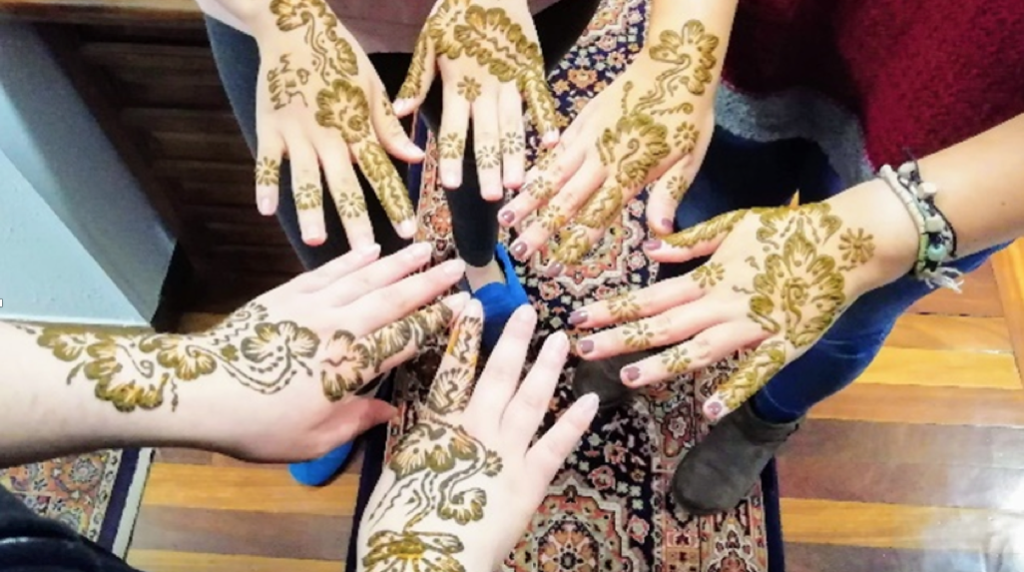Global migration is a major challenge for much of the world today and a priority for the Catholic Church. In words and deeds, Pope Francis repeatedly shows his deep compassion for all displaced people: we have witnessed his encounters with migrants and refugees on the islands of Lampedusa and Lesbos; his call to embrace them fully: to welcome, protect, promote and integrate migrants, refugees and victims of human trafficking…
In the line of synodality that we are living at this time in the Church we have a great challenge: to make the world ever more inclusive, to walk all together towards an ever greater us; to recompose the human family, to build together our future of justice and peace, ensuring that no one is excluded.
The future of our societies is a future «full of color», enriched by diversity and intercultural relations. That is why we must learn today to live together in harmony and peace.
My pastoral experience with migrants and refugees in Spain has been above all in the field of women in a housing project and networking with organizations working in this line of migration (Ubuntu Project «Migrant Women»).
The need arises to respond to the precarious situation of migrant women who are being hit by the current devastating social and economic situation, women who arrive as refugees to apply for asylum, and as these applications are not being accepted, they become illegal migrants. Women are arriving because of human trafficking, because of pressures from sexual exploitation networks from the country of origin…
These women are welcomed, offering them support that encourages them to carry out a process that culminates in their legalization and normalized insertion into our society. They are provided with information, guidance and support in the active search for employment or other social assistance in order to obtain decent housing. Our work is one of accompaniment, a pastoral listening and closeness to each one in their difficult situations and personal realities that cause this migration.
The work is teamwork and/or networking with other entities that offer social inclusion programs and work with migrants and refugees. Relationship of the women with groups of the parish that can promote knowledge of the socio-cultural reality and the environment. Neighbors and immediate environment. Communities and associations in the country of reference. The participation in the Department of Migration of the Diocese, through the Migration and Refugees table, where the participating institutions that see the need to unite to confront laws that are violating the dignity of migrants, is also an important space, a space of the Church in line of synodality, walking together in this great challenge of global migration.
At the social level, participation in international non-violent action in solidarity with migrants, such as «The Circle of Silence»; this is an inter-institutional movement, networking, which considers that the situation in which many people live is extremely precarious and appeals to the conscience of those who make the laws, those who apply them and those in whose name they are made, to make possible a policy more respectful of the dignity of people. They are also intended to help to raise awareness, to internalize and to be an element of interpellation to society about the extremely serious situation that many people suffer in Europe as refugees (www.circulosdelsilencio.es).
We all have in our minds the images of refugees from the war in Ukraine. We, as Capuchin Tertiary Sisters, have given a response of pastoral action to this current reality through our Sisters in Poland, a real and living pastoral action. They themselves wrote: «In the first welcome the important thing was to transmit: don’t be afraid, here we will help you, here there are no bombs, and here you will be safe and your children too… Welcome and cover the basics… food, shower, bed… And then listening to the fears, cries, misunderstandings… after a few months, listening is still the most important thing in pastoral care… We do not ask about their faith and do not answer why this happens… We listen to the pain, memories and above all small difficulties and joys of everyday life and the desire to return to normality. When we can, we help, when we cannot, we try to be close. Never to judge opinions and thoughts, but to welcome with the heart…»
Our Father Founder, yesterday and today, continues to encourage us to give our lives to bring the salvation that Christ offers to all without distinction, putting us on the road with the other, with others, not in front but beside others, bringing mercy and compassion that the world needs. Luis Amigó, a man who knew how to trust in God and respond to the signs of the times from the concrete of life, is also a reference for us Capuchin Tertiary Sisters of the Holy Family, to have our eyes wide open and our hearts on fire, like the disciples of Emmaus. And having our eyes open makes us aware that we are living a difficult moment in human history and a delicate moment in the life of the Church and religious life, but at the same time, a moment of grace, because we experience the close and unconditional presence of the God of history who looks at us with merciful eyes and comforts us. Our task is to be evangelically significant and not only pastorally efficient.
We are all called to follow the path opened by Pope Francis, a path defined as «the revolution of tenderness», in which he invites us not to be afraid to globalize solidarity to welcome refugees and migrants, reminding us that they are «the flesh of Christ».
Sr. Matilde Mena Moreno, Tc




